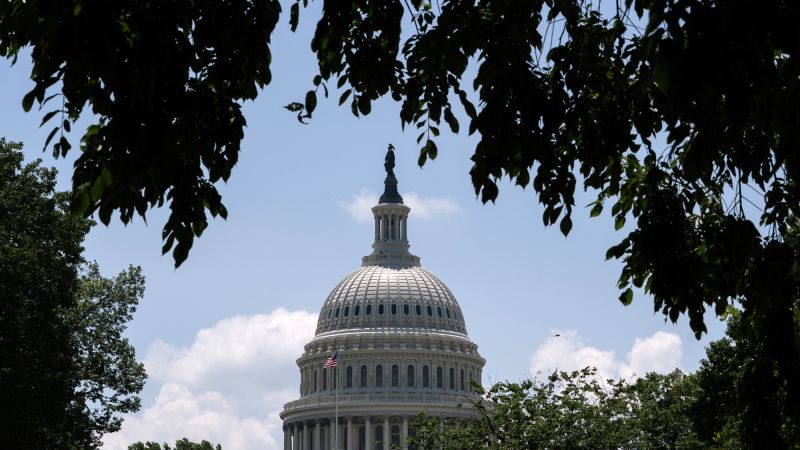In a stunning update from the Congressional Budget Office on Tuesday, it was revealed that the federal budget deficit is set to reach a staggering $1.9 trillion this fiscal year. This figure is 27% – or $400 billion – larger than previously estimated in February. Looking ahead, the nation’s debt is projected to hit $57 trillion by fiscal year 2034, nearly $2.5 trillion higher than previously thought.
The updated deficit projections are expected to have a significant impact on upcoming congressional budget and tax debates. The increase in the fiscal 2024 deficit can be attributed to several factors, including changes made by the Biden administration to student loan repayment plans and a proposed forgiveness program that could waive interest for millions of borrowers. Additionally, the Federal Deposit Insurance Corporation is facing challenges in recovering disbursements from resolving bank failures, leading to an increase in projected outlays for deposit insurance.
Furthermore, new legislation and higher spending on Medicaid are contributing to the growing deficit. The cumulative deficit over the 2025 to 2034 period is now projected to be $2.1 trillion larger, according to the CBO.
The fiscal outlook is expected to play a major role in this year’s presidential election, with both President Joe Biden and former President Donald Trump outlining different approaches to improving the nation’s fiscal health. Discussions on the fiscal year 2025 budget, the debt ceiling, and tax policies will also be heavily influenced by the growing deficit.
While the recent surge in immigration is expected to have a positive impact on lowering deficits over the coming decade, the nation’s uninsured rate is expected to rise, mainly due to the expiration of Covid-19 pandemic provisions and the end of Affordable Care Act subsidies.
Medicare enrollment is projected to rise as the population ages, while Medicaid coverage is expected to decline. Affordable Care Act enrollment is forecast to hit a high next year before declining in 2034. The CBO’s health insurance coverage projections pose a challenge for the Biden administration and Congressional Democrats who are looking to extend enhanced subsidies as part of negotiations over extending tax cuts.
The nation’s fiscal challenges are becoming increasingly urgent, prompting calls for a national conversation on addressing these economic issues moving forward.











